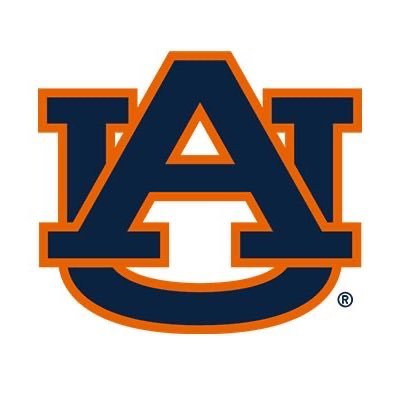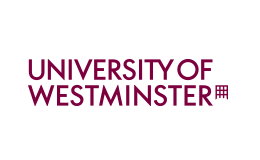Applied Biotechnology: Unlock Your Future in Cutting-Edge Science
Are you passionate about science and innovation? Applied Biotechnology is the perfect field for Indian students dreaming of a career in biotechnology, pharmaceuticals, or environmental science. This dynamic course combines biology, chemistry, and engineering to develop practical solutions for real-world problems like disease treatment, sustainable agriculture, and genetic engineering. Studying Applied Biotechnology abroad opens doors to world-class labs, global networks, and high-paying jobs. Whether you're from Mumbai, Delhi, or Bangalore, this guide will help you navigate your study abroad journey.
What is Applied Biotechnology?
Applied Biotechnology focuses on using biological systems and organisms to create products and technologies that improve human life. Unlike pure biology, it emphasizes practical applications in industries such as healthcare, agriculture, and food production. You'll learn to manipulate DNA, develop vaccines, engineer crops for better yields, and create biofuels.
Why choose this course abroad? Indian universities offer solid foundations, but international programs provide advanced research facilities, industry partnerships, and exposure to global standards. Countries like the USA, UK, Canada, and Australia lead in biotech research, offering hands-on experience that can boost your resume back home.
Course Overview and Curriculum
Most Applied Biotechnology programs last 1-2 years for master's degrees and 3-4 years for bachelor's. They blend theory with lab work, ensuring you're industry-ready. Expect a mix of core modules and electives tailored to your interests.
Key Topics Covered
- Molecular Biology and Genetics: Understanding DNA structure, gene editing tools like CRISPR-Cas9.
- Biochemical Engineering: Designing processes for large-scale production of biologics like insulin.
- Immunology and Microbiology: Studying immune responses and microbial applications in medicine.
- Bioinformatics: Using computational tools to analyze biological data.
- Environmental Biotechnology: Solutions for pollution control and renewable energy.
- Regulatory Affairs and Ethics: Navigating biotech laws and ethical dilemmas.
Programs often include internships, research projects, and industry placements. For example, a master's in the UK might involve a 6-month thesis on vaccine development, while US courses emphasize entrepreneurship in biotech startups.
Eligibility Criteria for Indian Students
To apply, you'll need a strong academic background in science. Here's a quick breakdown:
| Degree Level | Minimum Qualification | English Proficiency | Other Requirements |
|---|---|---|---|
| Bachelor's | 10+2 with Physics, Chemistry, Biology (PCB); 60%+ aggregate | IELTS 6.0+ or TOEFL 80+ | Entrance exams like SAT (for USA) |
| Master's | Bachelor's in Biotech/Biology/Microbiology; 55%+ GPA | IELTS 6.5+ or TOEFL 90+ | GRE (optional for some), SOP, LORs |
| PhD | Master's with research experience; 60%+ | IELTS 7.0+ or equivalent | Research proposal, publications |
Indian students should prepare for standardized tests early. Many universities offer conditional admissions if your English scores are pending.
Top Destinations and Universities
Choosing the right country matters for visa ease, cost, and job opportunities. Here's a comparison:
| Country | Top Universities | Tuition (Annual, INR) | Post-Study Work Visa | Why Ideal for Indians? |
|---|---|---|---|---|
| USA | MIT, Stanford, UC Berkeley | 25-40 lakhs | OPT up to 3 years | Leading biotech hub; H-1B visa path; diverse Indian community |
| UK | Imperial College, University of Edinburgh, Oxford | 20-30 lakhs | Graduate Route: 2 years | Short courses; NHS biotech roles; easy PR route |
| Canada | University of Toronto, UBC, McGill | 15-25 lakhs | PGWP up to 3 years | Affordable; welcoming immigration; strong pharma sector |
| Australia | University of Melbourne, Sydney, Queensland | 20-35 lakhs | Post-Study Work: 2-4 years | Research focus; subtropical climate similar to India; skilled migration |
USA programs like Stanford's MS in Bioengineering are renowned for innovation, while Canada's University of Toronto offers affordable options with co-op placements. For Indian students, consider factors like cultural adaptation—Canada and Australia have large Indian diasporas.
Career Opportunities and Salary Prospects
A degree in Applied Biotechnology abroad equips you for global roles. Back in India, demand is booming in companies like Biocon, Serum Institute, and Dr. Reddy's. Internationally, you'll find opportunities in biotech giants like Pfizer, Novartis, and Genentech.
Popular Job Roles
- Biotechnologist: Develop new drugs; salary: INR 8-15 lakhs (India), $80K+ (USA).
- Research Scientist: Lab-based R&D; INR 10-20 lakhs, CAD 70K+.
- Bioinformatics Specialist: Data analysis for genomics; INR 12-18 lakhs, £40K+ (UK).
- Quality Control Analyst: Ensure product safety; INR 6-12 lakhs, AUD 70K+.
- Regulatory Affairs Manager: Handle approvals; INR 15-25 lakhs, high demand in pharma.
With experience, you could earn over INR 30 lakhs in India or $100K+ abroad. Returning to India? Many alumni lead startups in Bangalore's biotech corridor. Post-study work visas allow you to gain experience before deciding on permanent residency.
Scholarships and Financial Aid for Indian Students
Studying abroad can be expensive, but scholarships make it accessible. Indian students have excellent options:
- Fulbright-Nehru Scholarship (USA): Covers tuition, living costs for master's; apply via USIEF.
- Chevening Scholarships (UK): Full funding for outstanding leaders; deadline in November.
- Vanier Canada Graduate Scholarships: CAD 50,000/year for PhD research.
- Endeavour Scholarships (Australia): Up to AUD 140,000 for postgrad studies.
- University-Specific Aid: MIT offers need-based grants; University of Toronto has international merit awards up to CAD 20,000.
- Indian Government Schemes: ICCR scholarships for developing countries; education loans from SBI at low interest.
Budget wisely: Living costs range from INR 10-20 lakhs/year. Part-time jobs (20 hours/week) in labs or cafes can help. Always check eligibility—GPA above 3.5/4 boosts chances.
Application Process: Step-by-Step Guide
Applying from India is straightforward with proper planning. Start 12-18 months in advance.
- Research Programs: Use sites like QS Rankings or Studyportals to shortlist.
- Prepare Documents: Transcripts, CV, Statement of Purpose (SOP) highlighting your biotech passion and why abroad.
- Take Tests: IELTS/TOEFL, GRE if needed. Book slots via British Council or IDP.
- Apply Online: Through university portals; fees INR 5,000-10,000 per application.
- Secure Funding: Apply for scholarships simultaneously.
- Visa Application: For USA (F-1), submit I-20 and DS-160; UK (Tier 4) needs CAS. Indian students: Show funds proof (INR 10-15 lakhs). Processing takes 4-8 weeks.
- Pre-Departure: Attend orientation; pack for varying climates—warm clothes for Canada winters!
Tips: Tailor your SOP to each university. Join forums like Pagalguy or Reddit's r/Indian_Academia for peer advice.
Why Study Applied Biotechnology Abroad as an Indian Student?
Beyond academics, studying abroad builds resilience and global perspectives. You'll collaborate with diverse peers, access cutting-edge tools like next-gen sequencers, and understand international regulations—crucial for India's growing biotech sector, projected to reach $150 billion by 2025.
Cultural perks: Celebrate Diwali with international friends, explore vibrant cities, and return with skills that make you employable worldwide. Challenges like homesickness? Universities offer Indian student societies and counseling.
Ready to apply? Applied Biotechnology abroad isn't just a degree—it's your gateway to innovation and impact. Contact our counselors for personalized guidance on your study abroad dreams.



